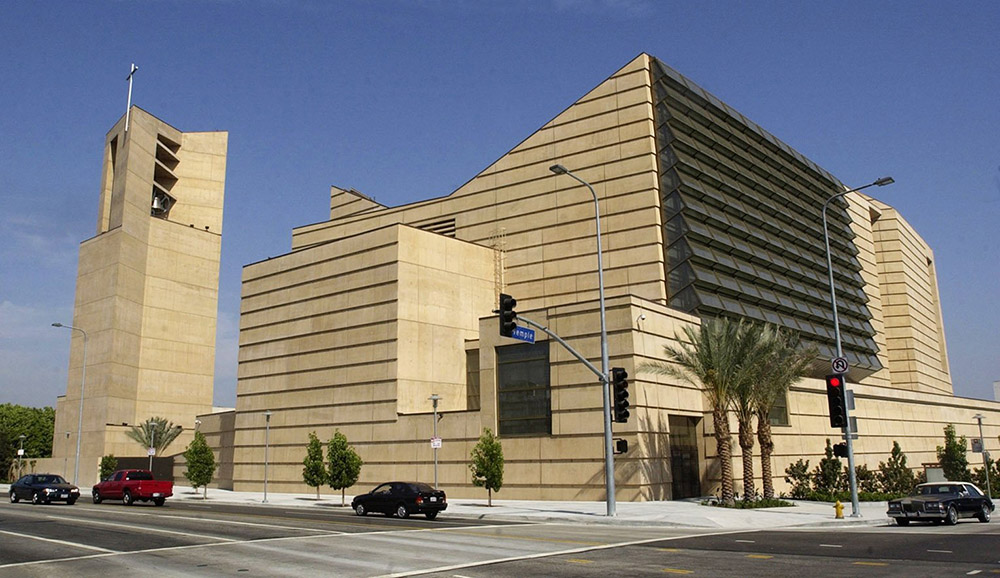
PROSPECT HEIGHTS — In a settlement that Archbishop José Gomez says will provide just compensation to victim-survivors and allow the local Church to continue to carry out its ministries, the Archdiocese of Los Angeles will pay out $880 million to settle 1,353 childhood sexual abuse claims.
The settlement was announced Oct. 16 in a joint statement from the archdiocesan council and the plaintiffs’ lawyers. Most of the allegations occurred more than 50 years ago, with cases dating back to the 1940s. The allegations are against archdiocesan clergy, laypeople associated with the archdiocese, and religious order priests and clergy from other dioceses serving in the archdiocese.
In a joint statement, the plaintiffs’ lawyers said that while no amount of money can replace the harm inflicted on the victim-survivors, “there is justice in accountability.”
“We are grateful to the brave survivors who came forward to hold those responsible accountable to protect the children of the future,” the lawyers said. “We appreciate the Archdiocese of Los Angeles for acknowledging its failures that enabled and perpetuated the harm that came to these children and remain hopeful that the Archdiocese will be vigilant in its efforts to prevent future abuses from occurring.”
The archdiocese previously came to a $660 million settlement with 500 victim-survivors in 2007. The newly announced settlement brings the cumulative payout to over $1.5 billion.
Archbishop Gomez apologized for the transgressions in an Oct. 16 letter to the faithful.
“I am sorry for every one of these incidents, from the bottom of my heart,” Archbishop Gomez said. “My hope is that this settlement will provide some measure of healing for what these men and women have suffered.”
Archbishop Gomez highlighted that “for many years now,” the archdiocese has confronted the consequences of abuse and enhanced its safety protocols to prevent future instances. The archdiocese provides pastoral care and financial support for victim-survivors to assist in their healing, enforces strict background and reporting requirements, and establishes extensive training programs to ensure safe environments across the archdiocese’s parishes, schools, and other ministries.
As a result of these efforts, Archbishop Gomez said new cases of sexual misconduct against priests and clergy in the archdiocese involving minors are “rare,” adding that no one who has been found to have harmed a minority is serving in ministry at this time.
“And I promise: We will remain vigilant,” Archbishop Gomez said.
The settlement is the result of a 2019 California law that removed the statute of limitations on childhood sexual abuse civil claims for three years. According to Archbishop Gomez, the archdiocese was named in about 1,900 claims during that period.
“Through a process of active mediation, I believe we have come to a resolution of these claims that will provide just compensation to the survivor-victims while also allowing the archdiocese to continue to carry out our ministries to the faithful and our social programs serving the poor and vulnerable in our communities,” Archbishop Gomez said.
In recent years, the California law has led other state dioceses to file for bankruptcy to address claims — a move that activists have criticized as a method to delay payments to victim-survivors.
The Archdiocese of Los Angeles did not take that route. Archbishop Gomez said the settlement would be paid from “reserves, investments, and loans, along with other archdiocesan assets and payments that will be made by religious orders and others named in the litigation.” He also emphasized that no designated donations to parishes, schools, or archdiocesan-wide collections and campaigns would be used to finance this settlement.
“There is no question that in the months ahead, there will be a great deal of uncertainty, and hard decisions will be required,” Archbishop Gomez said. “But please know that we will continue to be guided by the priorities of honoring our obligations to victims of past abuse while at the same time carrying out the mission to proclaim the Gospel and to serve our neighbors, not only in the present but for generations to eat.”
